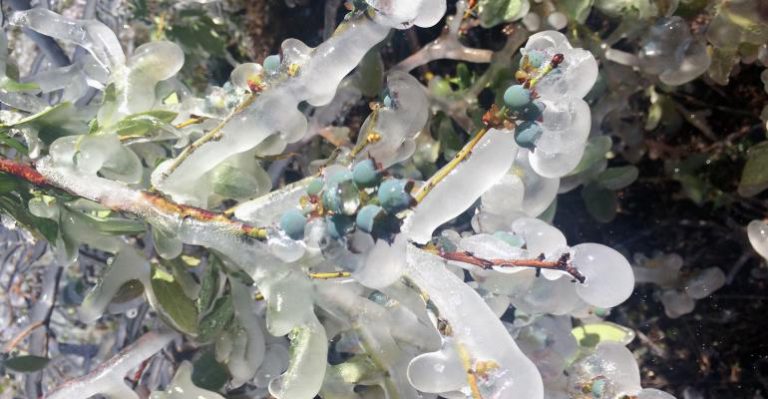By Clint Thompson
Southeast producers with blueberries impacted by last weekend’s sub-freezing temperatures need to survey any damage to their crop before applying fungicides to protect against subsequent diseases, says Jonathan Oliver, University of Georgia (UGA) Extension assistant professor and small fruits pathologist.
“As far as the blueberries go, we’re going to have to see where things stand. The fungicides with respect to botrytis would focus on trying to keep this year’s crop. It would really depend on how much damage they sustained to whether that makes sense to do,” Oliver said. “We have in the past always recommended applications of effective fungicides toward botrytis after we get some freeze events. Usually, though, we’re talking about freeze events in February or early March, not January. It’s unprecedented territory how early things have progressed this year.”

This year’s blueberry crop was ahead of schedule following warm temperatures during November and December. Early varieties were vulnerable to cold temperatures. Any of the early varieties in full bloom or petal drop had the potential to lose most of the fruit.
“We’re much earlier in development this year than we have been in the past. Last year we were probably two to three weeks behind normal. This year we’re probably two to three weeks ahead of normal,” Oliver said. “The southern highbush varieties that have blooms on them or even at petal fall, once you get to that point, even freezing or slightly below freezing temperatures can take out a large portion of those blooms or young fruit.”
Freeze protection procedures will allow for a few degrees of protection. Any winds associated with cold temperatures can further reduce the efficacy of freeze protection.
“The early varieties especially, growers will have a case-by-case basis to make a judgement there and see where they are after this freeze. We’ll wait until (this) week to see on that,” Oliver said.









